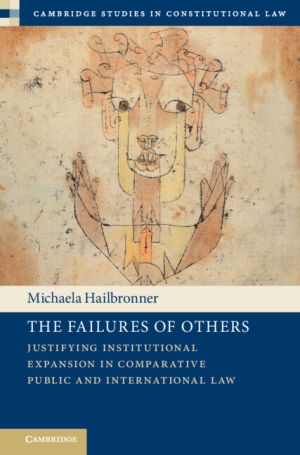
Arguments from failure – arguments that an institution must expand its powers because another institution is failing in some way 'to do its job' - are commonplace. From structural reform litigation where courts sometimes assume administrative or legislative functions, to the Uniting for Peace Resolution of the UN General Assembly, to the recent bill quashing British subpostmasters' convictions, such arguments are offered in justification for unorthodox exercises of public power. But in spite of their popularity, we lack a good understanding of these arguments in legal terms. This is partly because failure itself is a highly malleable concept and partly because arguments from failure blur into other more familiar legal doctrines about implied powers or emergencies. Michaela Hailbronner argues that we can do better: we should recognize arguments from failure as a distinct concept of public law and harness the tools of contemporary constitutional theory to evaluate such arguments in different settings.